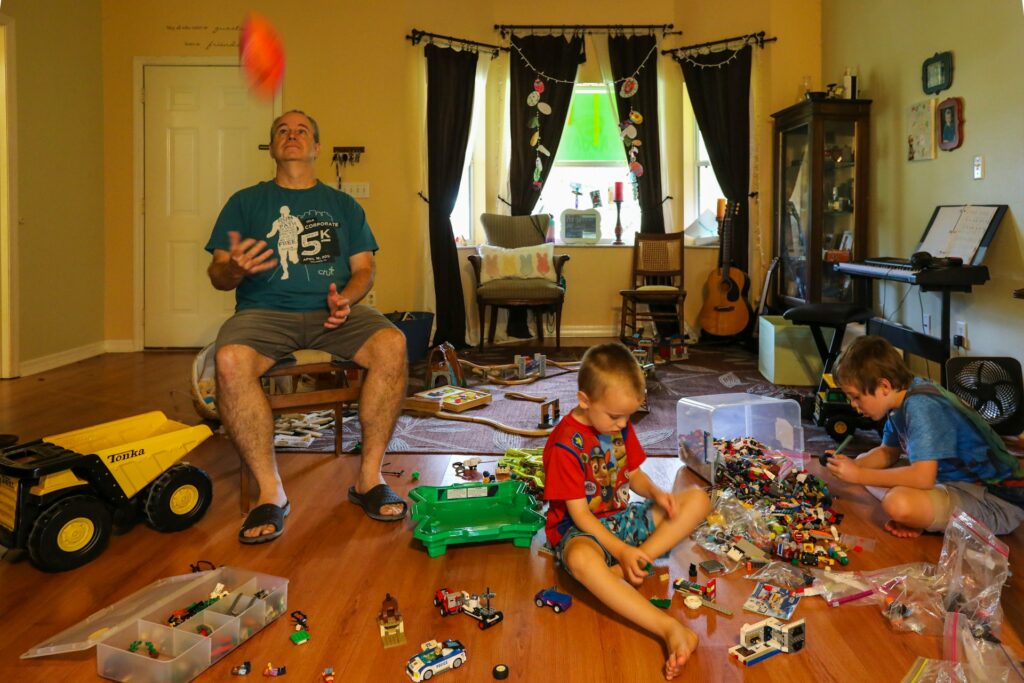As a dad, I know all too well how easy it is to put sleep on the backburner. Between work, household chores, helping with homework, and everything else that comes with raising a family, there never seems to be enough hours in the day. Sometimes, I find myself sacrificing sleep just to keep up with the endless demands of life, and I’ll be honest—there are days when I feel like I’m running on fumes. But lately, I’ve started to realize that when it comes to my kids, sleep isn’t just something to squeeze in if there’s time. It’s absolutely essential to their development.
It wasn’t until recently that I truly grasped the full importance of sleep, not just for myself, but for my children. As adults, we often convince ourselves that cutting corners on sleep is just a part of life, a necessary evil to stay on top of our busy schedules. But when it comes to the development of growing minds, sleep is not a luxury—it’s a necessity. The more I’ve learned about the profound effects of sleep on my kids, the more I’ve understood how critical it is for their cognitive, emotional, and physical well-being.
First and foremost, sleep plays a key role in cognitive functioning. As a tired parent, I’ve had my fair share of “brain fog” after too many sleepless nights, and I know my kids experience something similar when they’re not getting enough rest. Sleep is when our brains do the vital work of consolidating new information. It’s when they process the things they’ve learned during the day, making connections between different concepts and experiences. For kids, this process is even more critical because their brains are growing and developing at a rapid pace. Without proper sleep, their ability to retain information, problem-solve, and tap into their creative potential is significantly compromised. I’ve noticed it firsthand: when my kids don’t get enough sleep, they struggle with focus and memory, and they’re less likely to think outside the box when faced with a challenge. Sleep helps them sharpen those cognitive tools, enabling them to tackle schoolwork and other tasks more effectively.
But it’s not just about memory and learning. Sleep also deeply affects my kids’ emotional well-being. I’ve seen how a lack of sleep can make them more irritable, moody, and easily frustrated. It’s as if they don’t have the emotional bandwidth to cope with the little stresses of the day. And that’s not just a temporary inconvenience—it’s a pattern I’ve seen when they miss out on rest. Sleep is the buffer that helps them regulate their emotions and deal with challenges more effectively. When they’re well-rested, they’re better able to manage their feelings and respond to situations with a calm and measured approach. On the flip side, when they’re sleep-deprived, it’s like everything becomes a bigger deal than it needs to be. I’ve seen tantrums over the smallest things, and I can almost always trace it back to a bad night’s sleep.
What’s even more concerning is that the impact of sleep deprivation on children’s mental health can be long-lasting. Studies show that lack of sleep is linked to higher rates of depression, anxiety, and behavioral issues in children. As a parent, that’s a scary thought. We want our kids to have the emotional resilience to handle life’s challenges, and sleep is one of the foundational pieces of that. When I make sure they’re getting enough rest, I’m setting them up for better emotional regulation, more resilience, and ultimately, better mental health.
It’s easy to overlook the importance of sleep, especially when we’re busy, and the world is constantly demanding more from us. But the truth is, sleep is not a luxury—it’s a pillar of health, especially for kids. I’ve come to realize that when I prioritize my children’s sleep, I’m helping them build a stronger foundation for learning, emotional stability, and overall well-being. It’s not just about avoiding the crankiness or the tantrums—though that alone is motivation enough! It’s about giving them the best possible chance to thrive, not just today, but in the future as well.
If you want to learn more about the importance of sleep for growing minds, I found this eye-opening article that dives deep into the subject: Unleashing the Power of Sleep: The Importance of Rest for Growing Minds. It’s a great read for any parent looking to understand how vital sleep is for their child’s overall development.
As a tired dad myself, I know how challenging it can be to balance everything, but making sure my kids get enough sleep is one thing I can do that makes a huge difference in their lives. When I start thinking of sleep as an investment in their future—rather than just a necessary break for me—it puts things into perspective. Sleep is more than just rest; it’s the key to their cognitive growth, emotional health, and physical development. And that’s something I can feel good about prioritizing.



